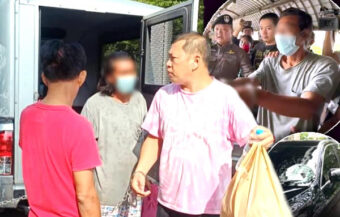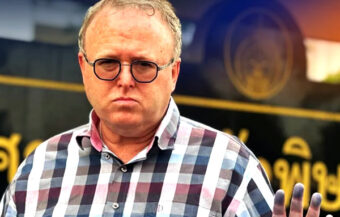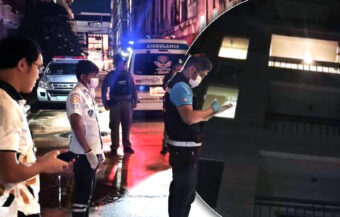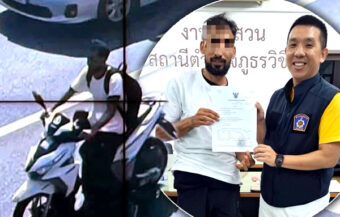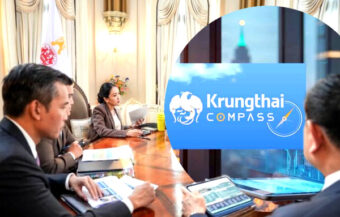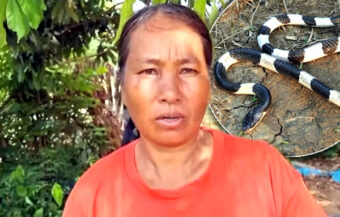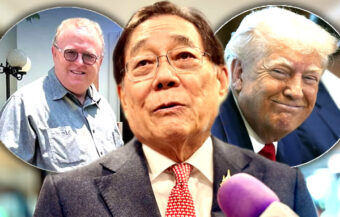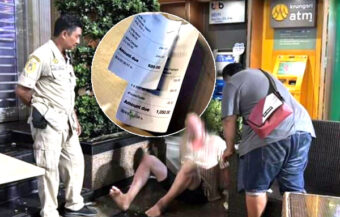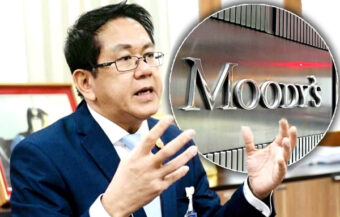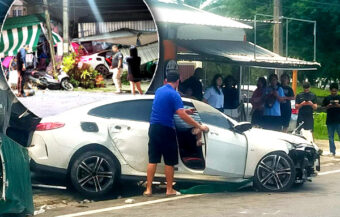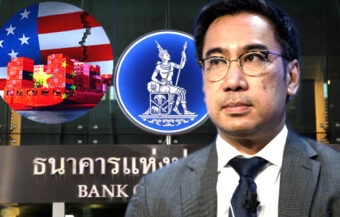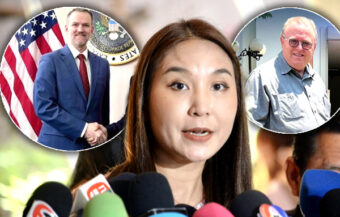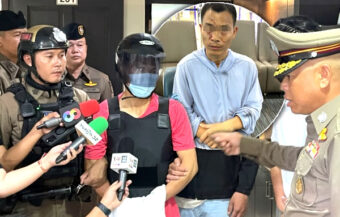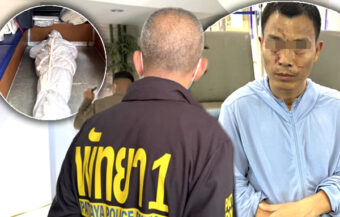New leader and Chairman in Pheu Thai as the party gears up for the election in the face of desertion for new parties and the threat of dissolution
Former government minister, Pheu Thai heavyweight and now Chairperson of the party’s executive committee Sudarat Keyuraphan has said there is not enough time for political parties to listen to the public and for policies in the run up to the new election. However she is quite clear that the forthcoming election should not be postponed. The woman responsible for Pheu Thai election strategy also expressed a view that there is nothing unusual about former Pheu Thai parties joining new parties, a political phenomenon she links to Thailand’s new Constitution. The forthcoming election is already producing many interesting play and moves by opposing political forces. While an opinion poll this week showed that 83 % of Thai people were unaware of the candidates in their constituency there should be no doubt that they are fully aware of the political situation and the contest to be fought out until February 24th 2019 and thereafter to the first meeting of the new Thai parliament in May 2019. This assumes that he election takes place on February 24th as is now scheduled with renewed speculation this week, from credible sources, that it may be postponed. Under the election law that has been passed, the election could take place in a window between the end of February and May 2019.
Pheu Thai Party, one of the most influential parties in Thailand, chose acting head Viroj Pao-in as its new leader. It is not know at this stage if Viroj, a police lieutenant-general who used to serve as a deputy prime minister in a previous Thai government, will also be Pheu Thai’s candidate for prime minister in the election to take place in the new parliament following the election now set for February 24th 2019. Asked by reporters, it was only revealed that the matter would be decided at a late stage. Police Lieutenant General Pao-in was elected on October 28th with only one candidate put forward for the post.
Pheu Thai party focusing now on candidates and policies for the election to take place in 2019
Meanwhile, new Pheu Thai executives were also elected with Sudarat Keyuraphan, a leading member of the former ruling party, being voted as the chairperson for the executive committee. A party statement highlighted a decision to concentrate on building party policies before selecting candidates for the election. The Pheu Thai party and its previous incarnations have won successive elections in the past in Thailand. The most recent Pheu Thai-led administration was unseated by the 2014 coup which lead to the current military government coming to power.
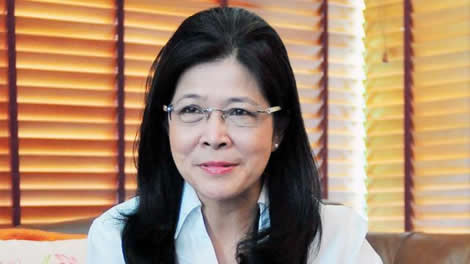
The 57 year old M/s Keyuraphan told reporters after the election of the new party leader that she would be focused on finding the best people and the best policies after she was also elected to a committee responsible for oversight of the party’s candidates to be fielded in the coming election. ‘What I have to do now is to gather all the capable people in the party and bring out the best to work for the people,’ she said. ‘We will now go and talk to the people and consult them to formulate our party’s policies.’
Chairperson of Pheu Thai’s executive committee denies links with other parties being formed
Sudarat has also moved to quell speculation of a division within the ranks of the party as a new party association was with the Shinawatra family and other allies of the ex PM had held an inaugural meeting in Bangkok. The Thai Raksa Chart party is expected to contest the election as well as a party formed by a former Pheu Thai MP which is targeting southern Thailand. The moves have prompted speculation by former street project leader and former Democrat party veteran Suthep Thaugsuban who has voiced concern that the moves are part of a sophisticated election strategy by the opposition which he warned about last week suggesting there was no room for complacency about such tactics. Suthep also referred in his comments to the surprisingly popular Future Forward party lead by young business tycoon Thanathorn Juangroongruangkit.
Mr. Juangroongruangkit has expressed radical opposition to the military junta. The new political leader attended a police interview recently as a witness over a controversial Facebook broadcast.
Pheu Thai Executive Chairman says it’s normal for members to move on to new political parties in this new political dispensation in Thailand
On Saturday Khunying Sudarat Keyuraphan of Pheu Thai said that it was quite normal for MPs and party members to switch party affiliations or preferences. She particularly drew attention to the provisions of Thailand’s new constitution which makes it difficult for new parties to be established. The new rules require funding of at least 1 million baht and initially 500 founding members. The new law, while it makes it easier to form new parties at one level, is aimed at restricting unlimited funding through parties by rich benefactors thereby distorting the political landscape.
Future Forward emerging as a force with a good showing in opinion polls and fundraising
Parties must account for their membership to Thailand’s election commission in a strict manner and party fund raising is very strictly limited to key areas such as membership fees. The new rules however have been problematic for some such as very small groups trying to establish parties in poorer areas who find it either too difficult to find the ฿1 million required or to find 500 initial member to pay the required fees. The success of the Future Forward party has attracted some attention with reports that it had raised upwards of ฿20 million baht in one week emerging recently. This has prompted a warning from Thailand’s election commission charged with implementing the new regime pointing out the large donations were prohibited under Thailand’s new electoral law. There are other reports suggesting that the Future Forward Party is preparing to raise a war chest of ฿300 million baht to contest the election. The party has emerged with a good showing in opinion polls and it may well be that this reflects enthusiasm on the ground including fund raising efforts.
Many see new parties affiliated to Pheu Thai
It is reported that several Pheu Thai former members are now among the ranks of the newly formed Thai Raksa Chart party. The Thai name means Thai Nation Protection in English. To some political observers including Suthep Thaugsuban, the new party could be affiliated with Pheu Thai. At the same time, it is reported that many Pheu Thai members are concerned at the prospects for the party which may face being abolished if an enquiry being conducted by Thailand’s powerful election commission comes to the conclusion that the party is under the control or being managed by Thailand’s ex Premier, Thaksin Shinawatra.
Pheu Thai senior leader says time is too limited to prepare real policies for the election
Khunying Sudarat exposed her concerns however about the restrictions on normal politics still in place which constrain the party’s activities in advance of the February election although senior government officials have indicated that open political activity will be allowed from December in the run up to the election at the end of February 2019. Khunying Sudarat expressed a fear that the political parties may not have enough time to listen to the people in particular in relation to the preparation of new policies. At the same time, she was adamant that she did not want to see the forthcoming election postponed or the date extended.
Thai military makes clear incitement will not be tolerated as it promises to deploy personnel
In another development, the military government has emphasised that it will be monitoring political activities including communications and information published by parties and individual politicians. Colonel Winthai Suvaree, a spokesman of the National Council for Peace and Order (NCPO), said on October 28th that the new move of the army was not intended to restrict lawful political activities but to ensure peace and order. The Thai military will discreetly deploy military personnel at political events and rallies by parties and individuals. The primary role of such activities will be to prevent unrest or any attempt to incite a disruption to peace and order. Citing disinformation, a problem that is wreaking havoc across the western world, he defended the army action and warned that any politician found spreading inflammatory remarks or misleading information would be targeted by the NCPO.
Thai public want to vote but not sure of the process
Meanwhile a NIDA poll last weekend shows that may Thai people are confused over the mechanism of the new election. This will see Thai voters cast one ballot which will be interpreted later on votes for the party list system and the 350 individual constituencies. Some 77% of Thai people expressed a lack of certainty about the procedure. Thailand’s Prime Minister has asked the government to make efforts to educate and make Thai people more aware of the election which is still scheduled for February 24th. At the same time, Thailand’s commission is still considering EU’s request to send election monitors to help witness the election and report on conditions. The NIDA poll also raised concerns about whether Thai people were aware of times on election day for the poll. A huge 83% of Thai people have no knowledge yet of the candidates that they will be choosing from. While this may be the case, it would be wrong to underestimate the Thai public.
There is a deep interest in politics and Thai people voracious consumers of news and current affairs not to mention casual chats and conversations. The public is well aware of the political nuances and machinations when it come to the key players and parties contesting the election. It is therefore all the more interesting to see what the result will be. A recent opinion poll showed a slight majority against the current Prime Minister who is not be on the ballot nor associated with any political party at this stage.
Prayut Chan-o-cha is expected to be a candidate for prime minister when the new parliament is expected to meet in May 2019 if the election goes ahead as planned. The western expression that a week is a long time in politics is even more weighted in Thailand where every day sees a new political turn or twist and May 2019 is a log way of yet.

